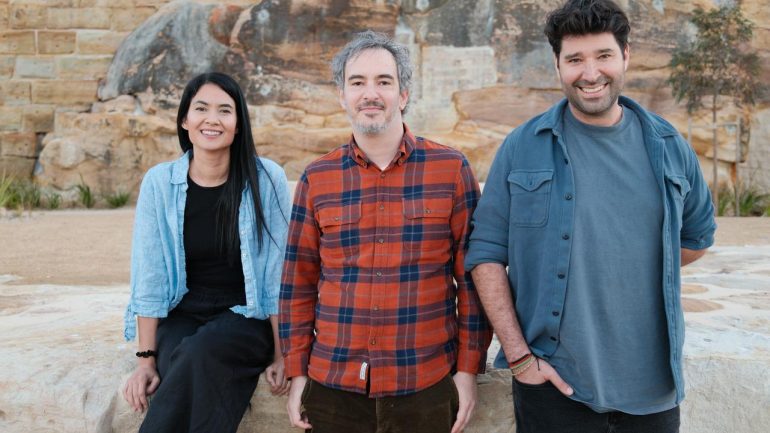- Canva acquires Leonardo.ai, a generative AI startup.
- The acquisition involves a mix of cash and stock; financial details undisclosed.
- Leonardo.ai’s 120 employees, including executives, will join Canva.
- Leonardo.ai will operate independently but with Canva’s support for innovation and growth.
- The startup, founded in 2022, initially focused on video game assets before expanding to various industries.
- Leonardo.ai offers tools like Live Canvas for real-time image creation from text and sketches.
- The company claims its models are trained on licensed, synthetic, and publicly available data.
- Leonardo.ai has over 19 million registered users and has created more than a billion images.
- The acquisition will integrate Leonardo.ai’s technology into Canva’s Magic Studio.
- Canva’s recent investments in AI include a $200 million creator compensation fund and previous acquisitions like Kaleido.
- This is Canva’s eighth acquisition overall and second this year.
- Canva has raised over $560 million, is valued at $26 billion, and serves over 180 million monthly users.
Main AI News:
Canva has taken a significant step forward in its AI strategy by acquiring Leonardo.ai, a leading generative AI content and research startup. This acquisition is set to enhance Canva’s AI technology stack and expand its capabilities. The deal, which involves both cash and stock, has not disclosed specific financial terms. As part of the acquisition, Leonardo.ai’s team of 120 employees, including its executive leadership, will join Canva.
Cameron Adams, Canva’s co-founder and Chief Product Officer, emphasized that Leonardo.ai will continue to operate independently while benefiting from Canva’s extensive resources. “Leonardo will maintain its commitment to innovation, research, and development, and will continue to offer its existing suite of tools and solutions,” Adams said. The acquisition is designed to support Leonardo.ai in advancing its platform, accelerating user growth, and expanding its API offerings, along with investing in foundational model research and development.
Leonardo.ai, which was founded in Sydney in 2022, initially focused on creating assets for video games. The startup’s founders, having met while working in the gaming industry, pivoted to broaden the platform’s scope to address various use cases, including image creation for industries such as fashion, advertising, and architecture. The company now offers a range of collaboration tools, a private cloud for model storage, and APIs that allow customers to build custom tech infrastructure on its platform.
One of Leonardo.ai’s standout features is its Live Canvas tool, which enables users to generate photorealistic images in real-time based on text prompts and sketches. This feature sets Leonardo.ai apart from other generative AI art platforms by providing users with extensive control over the creation process. Although details about how Leonardo.ai trains its generative models, such as its flagship Phoenix model, remain somewhat opaque, the company has stated that its models are trained on “licensed, synthetic, and publicly available/open source data.”
Leonardo.ai boasts over 19 million registered users and has been instrumental in creating more than a billion images. Its integration into Canva’s Magic Studio generative AI suite is expected to enhance the functionality of existing tools and introduce new AI capabilities directly within Canva’s platform. This move aligns with Canva’s broader strategy to invest in and advance generative AI technologies.
Prior to this acquisition, Canva had already demonstrated its commitment to AI through various initiatives, including its $200 million investment in creator compensation for AI training content. The company’s acquisition of Kaleido in February 2021, which specializes in drag-and-drop background removal for images and videos, laid the groundwork for its recent generative AI advancements.
Leonardo.ai represents Canva’s eighth acquisition overall and its second this year, following the purchase of U.K. design company Affinity for an estimated $380 million. Canva also owns other notable companies such as presentations startup Zeetings, stock photography sites Pixabay and Pexels, and Czech-based product mockup app Smartmockups.
Founded in 2012, Canva has raised over $560 million and is currently valued at $26 billion. The company generates nearly $2 billion in annual revenue and serves over 180 million monthly users worldwide. With this acquisition, Canva aims to build on its AI capabilities to offer a more powerful, integrated visual AI platform.
Adams concluded, “This acquisition is a significant but natural progression in our efforts to create the most comprehensive visual AI offering. By integrating Leonardo’s technology into Canva’s AI workflow, we are poised to deliver innovative solutions that will set our platform apart and provide new possibilities for our growing base of enterprise and team users.”
Conclusion:
Canva’s acquisition of Leonardo.ai is a strategic move to bolster its generative AI capabilities and enhance its Magic Studio suite. By integrating Leonardo.ai’s advanced tools and technology, Canva aims to solidify its position as a leader in the AI-driven design space. This acquisition reflects a broader market trend where companies are investing heavily in AI technologies to offer more innovative solutions and expand their service offerings. As Canva continues to integrate and leverage Leonardo.ai’s expertise, it is likely to gain a competitive edge in the rapidly evolving AI landscape, driving further growth and potentially attracting more enterprise customers.

